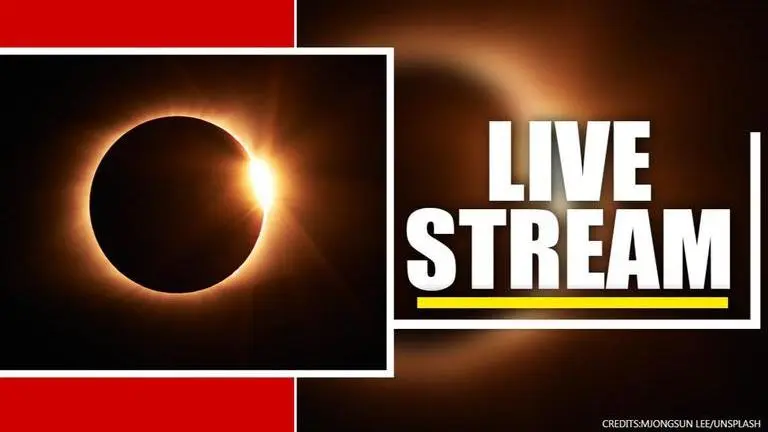Updated 21 June 2020 at 10:51 IST
Solar Eclipse time in India & live stream: Watch 'Surya Grahan 2020'; read Dos & Don'ts
The Solar eclipse will be visible in India. This article contains the timings for different cities, a live stream of the Surya Grahan 2020, and dos & don'ts
- Science News
- 3 min read

Solar Eclipse 2020 also known as the 'Surya Grahan' will be witnessed by the entire world on Sunday, June 21. The eclipse will begin at 9.15 am and end at 3.04 pm. The solar eclipse 2020 is considered to be special this year as it will fall on the same day as the summer solstice which is the longest day of the year, after which the days begin waning again. This 'Annular Solar Eclipse' is also being termed as the 'ring of fire'.
A solar eclipse- occurs at the time when Moon comes in between the earth and the sun. It obstructs the rays of the Sun from reaching the Earth. Thus, when the eclipse occurs, the Earth goes dark for that time. However, as the Moon is smaller in size than the Sun, it forms a ring of light when it comes in front of the Moon - depending on the extent of the solar eclipse which is generally depending on where one watches it from.
Do's and Don'ts during the Solar Eclipse 2020
People across the world are eagerly waiting to witness the eclipse especially the skygazers and the scientists. One must be careful when it comes to watching the sky during the eclipse with bare eyes. The rays of the sun can permanently damage the tissues of the eyes and the Ultra Violet (UV) radiation can also weaken the outer layer of the eye and lead to cataract development.
Advertisement
According to NASA when 99 per cent of the sun's surface is covered during the partial phases of a solar eclipse, the small visible part of the sun can still burn the retina the eyes hence it is highly recommended not to watch the eclipse with bare eyes.
Avoid the use of sunglasses, goggles, exposed x-ray sheet or lampblack over a glass they are not safe and can lead to permanent vision loss and can damage the eyes.
In order to watch the solar eclipse in a safe way, one can use protective eyeglasses, binoculars, use a telescope or a box projector which are recommended and approved by NASA and ISRO. If you do not have access to specialized equipment like glasses, you can simply make a pinhole in a card sheet and hold it under the Sun.
One can also capture the 'ring of fire' on their smartphone or DSLR by shooting through a telephoto lens to get proper shots.
Advertisement
Watch the Solar eclipse live stream here:
And here's another live stream of the solar eclipse:
Timing of the solar eclipse
The solar eclipse June 2020 will commence at 9.15 AM as per Indian standard time. The full eclipse will begin from 10.17 AM with the maximum eclipse occurring at 12.10 PM. The solar eclipse will end at 3.04 PM according to Indian time. In Mumbai, the eclipse will begin at 10 AM IST and the peak of the solar eclipse will be reached at 11:37 AM IST and it will end at 1:27 PM IST. The ‘ring of fire’ of the annular solar eclipse will be visible from 10:20 am to 1:48 pm with maximum visibility at 12:01 pm in Delhi, informed the reports.
Check out the timings of the eclipse in different cities, as per the Weather Channel, here:
Published By : Brigitte Fernandes
Published On: 21 June 2020 at 10:05 IST

